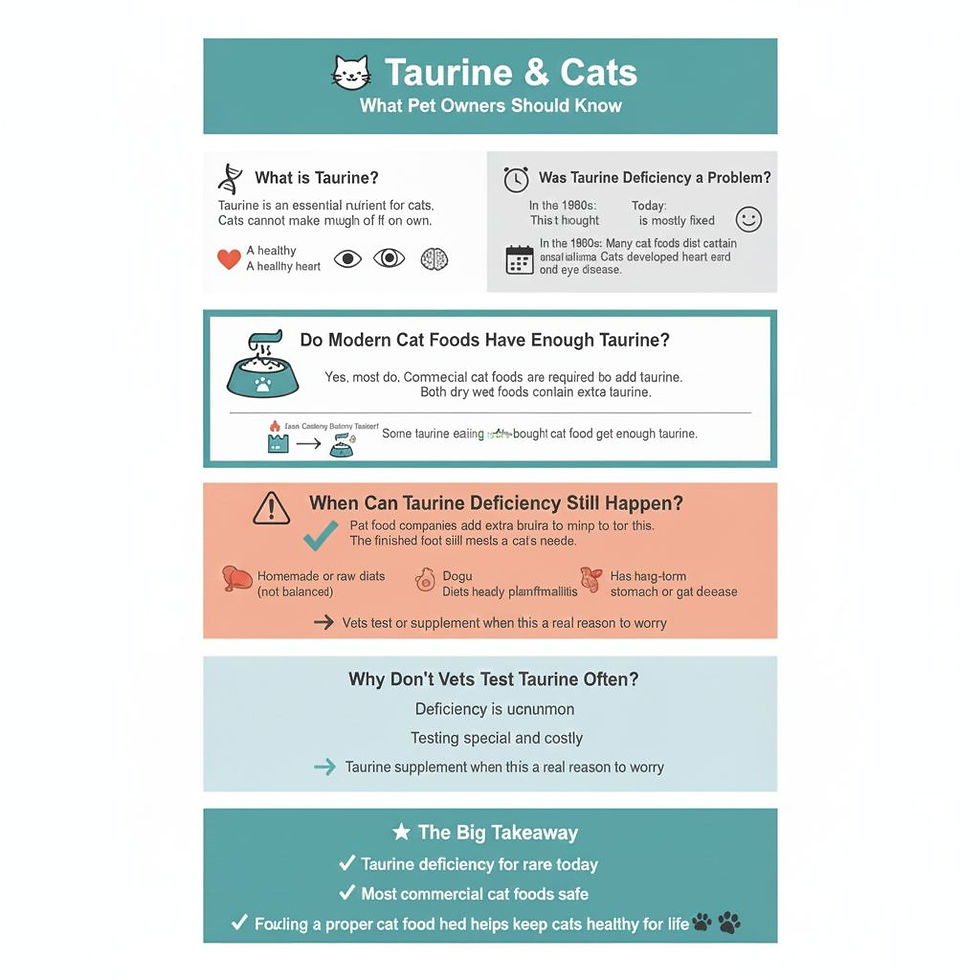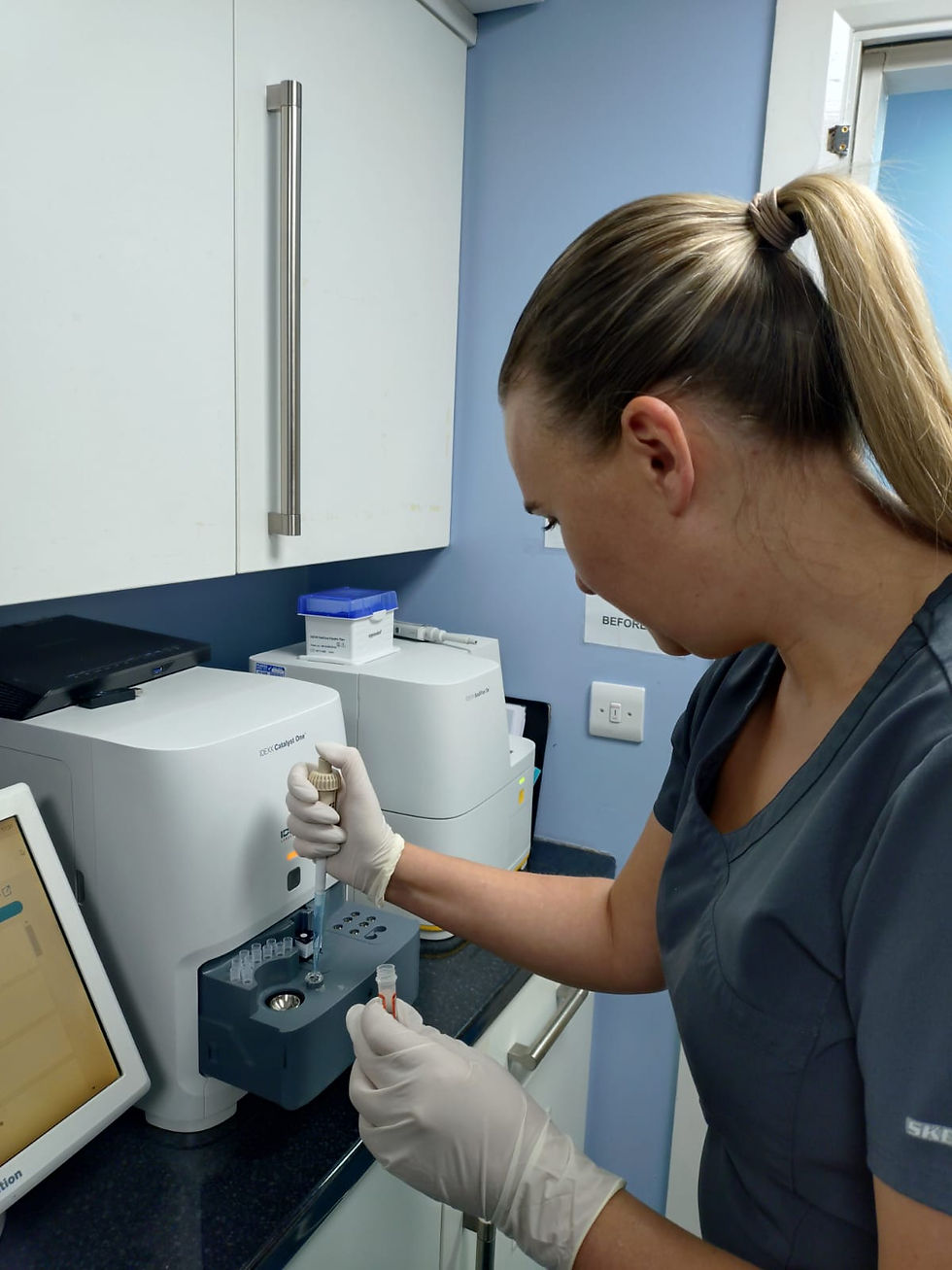Understanding Geriatric Cat Conditions: What to Watch for as Your Cat Ages
- Paul Proctor
- May 30, 2025
- 3 min read
As our feline companions grow older, their needs change, and so do the health challenges they may face. Senior cats—typically those over the age of 10—can develop a range of age-related conditions that may affect their quality of life. Understanding the most common geriatric cat conditions can help you catch early signs, seek timely veterinary care, and support your cat in living a comfortable, happy life in their golden years.

1. Hyperthyroidism
Hyperthyroidism is one of the most common endocrine disorders in senior cats. It occurs when the thyroid gland produces excessive amounts of the hormone thyroxine (T4), leading to an overactive metabolism.
Common Symptoms Include:
Noticeable weight loss despite a strong or increased appetite
Increased vocalization, especially around feeding times
Irritability or short-tempered behavior
Hyperactivity and restlessness
Vomiting
If you notice any of these signs, it’s important to have your cat tested. Hyperthyroidism can often be managed with medication, diet, or in some cases, surgery or radioactive iodine therapy.
2. Chronic Kidney Disease (CKD)
Chronic Kidney Disease is another prevalent condition among aging cats. Over time, the kidneys begin to lose their ability to filter waste products from the bloodstream effectively, leading to toxin buildup and other complications.
Early Warning Signs:
Increased thirst and frequent urination
Weight loss
Decreased appetite
Vomiting
While CKD is progressive and not curable, early detection and management—such as special diets, hydration support, and medications—can significantly improve your cat’s quality of life.
3. Arthritis
Just like in humans, aging cats can suffer from arthritis—a painful condition resulting from the breakdown of cartilage in their joints. Unfortunately, cats are masters at hiding pain, so arthritis can go unnoticed for a long time.
Symptoms to Watch For:
Stiffness or limping
Difficulty jumping onto furniture or climbing stairs
Changes in grooming habits or difficulty reaching certain areas
Reluctance to move or decreased activity
Muscle loss, especially in the legs
Joint supplements, anti-inflammatory medications, and creating an accessible environment (ramps, heated bedding, etc.) can make a big difference for arthritic cats.
4. Cognitive Dysfunction (Feline Dementia)
Cognitive dysfunction in cats, often likened to dementia in humans, can be a distressing condition that affects memory, learning, and awareness.
Typical Signs Include:
Disorientation or confusion (e.g., getting "lost" in familiar places)
Changes in sleep patterns—often more active or distressed at night
Unusual interactions with the environment (staring at walls, difficulty navigating)
Increased or excessive vocalization
Although there is no cure, environmental enrichment, a consistent routine, and sometimes medications or dietary supplements can help support cognitive health in aging cats.

As your cat enters their senior years, being attentive to subtle changes in their behavior, appetite, and mobility is key. Many age-related conditions can be managed effectively if caught early, helping your cat remain happy and comfortable well into old age. Regular vet check-ups, a suitable diet, and a little extra TLC can make all the difference.
Support from SimplyCats
At SimplyCats, we understand how important your feline family members are. Our clinic specialises in feline care, and our experienced team is here to help guide you through every stage of your cat’s life—including their golden years. If you're noticing any changes in your senior cat’s health or behavior, or if you’d like to schedule a senior wellness check-up, don’t hesitate to contact us.
For more information, advice, or to book an appointment, visit SimplyCats.net or call our friendly team today.
Let’s keep your cat purring for years to come.






Comments